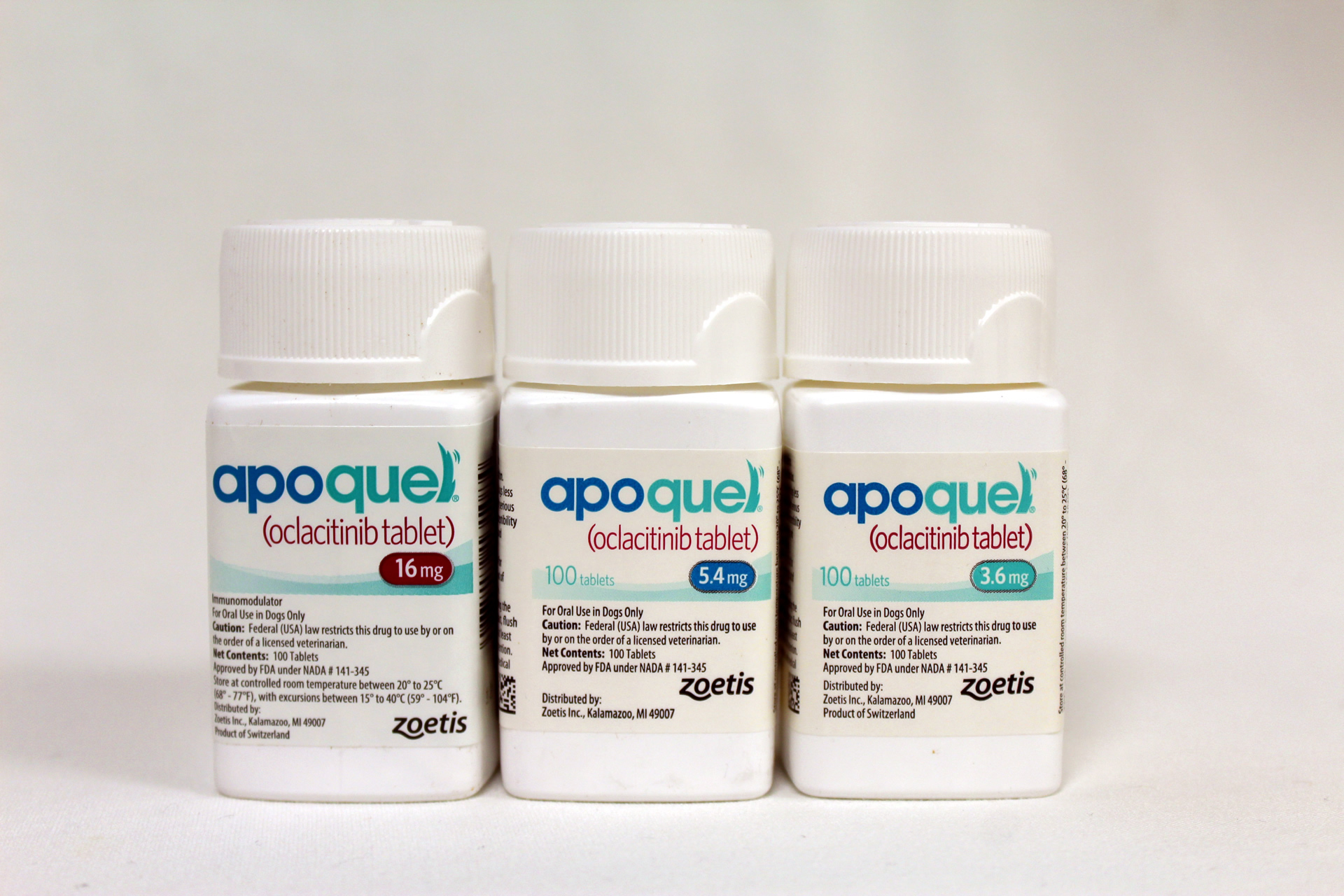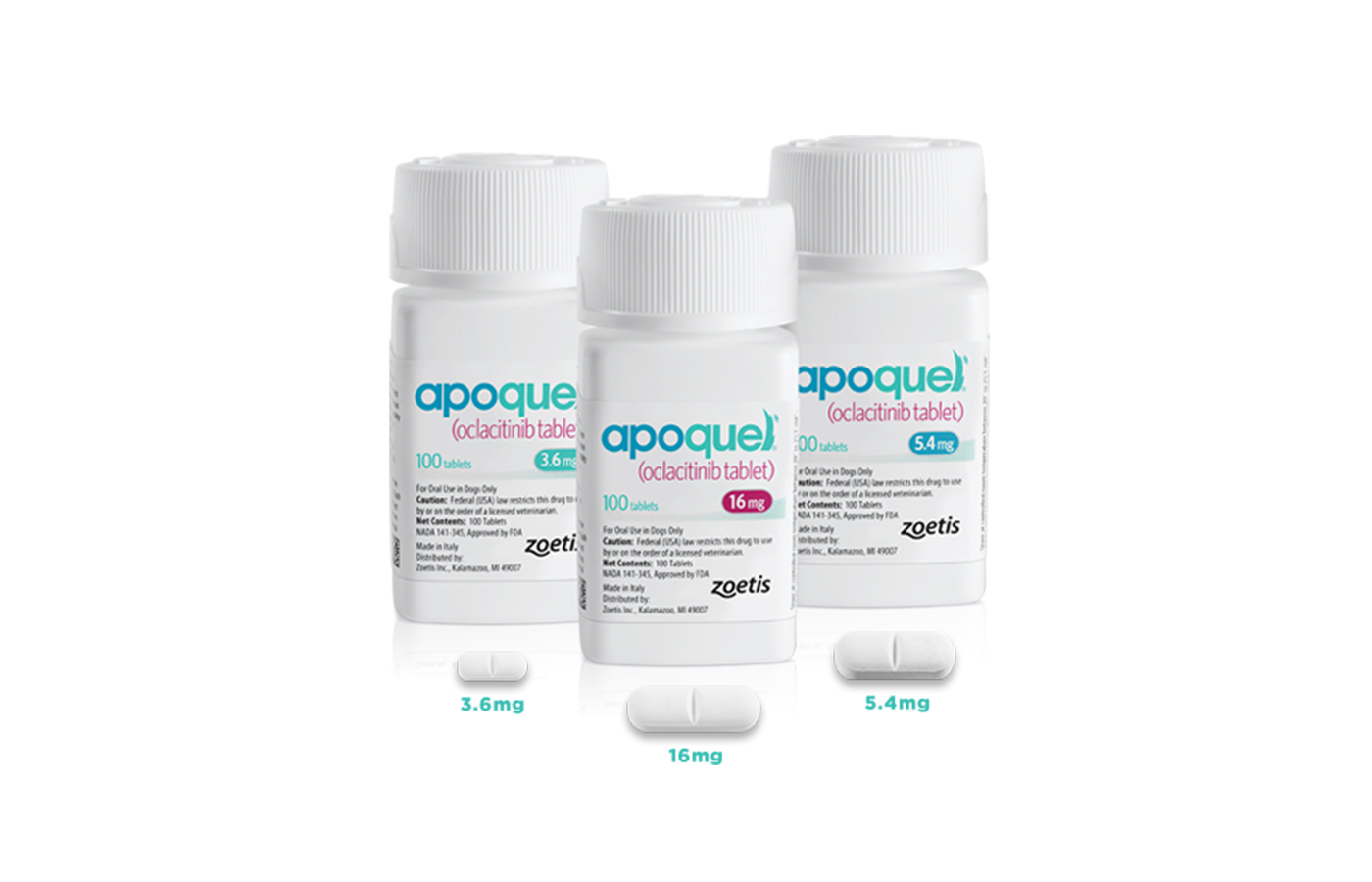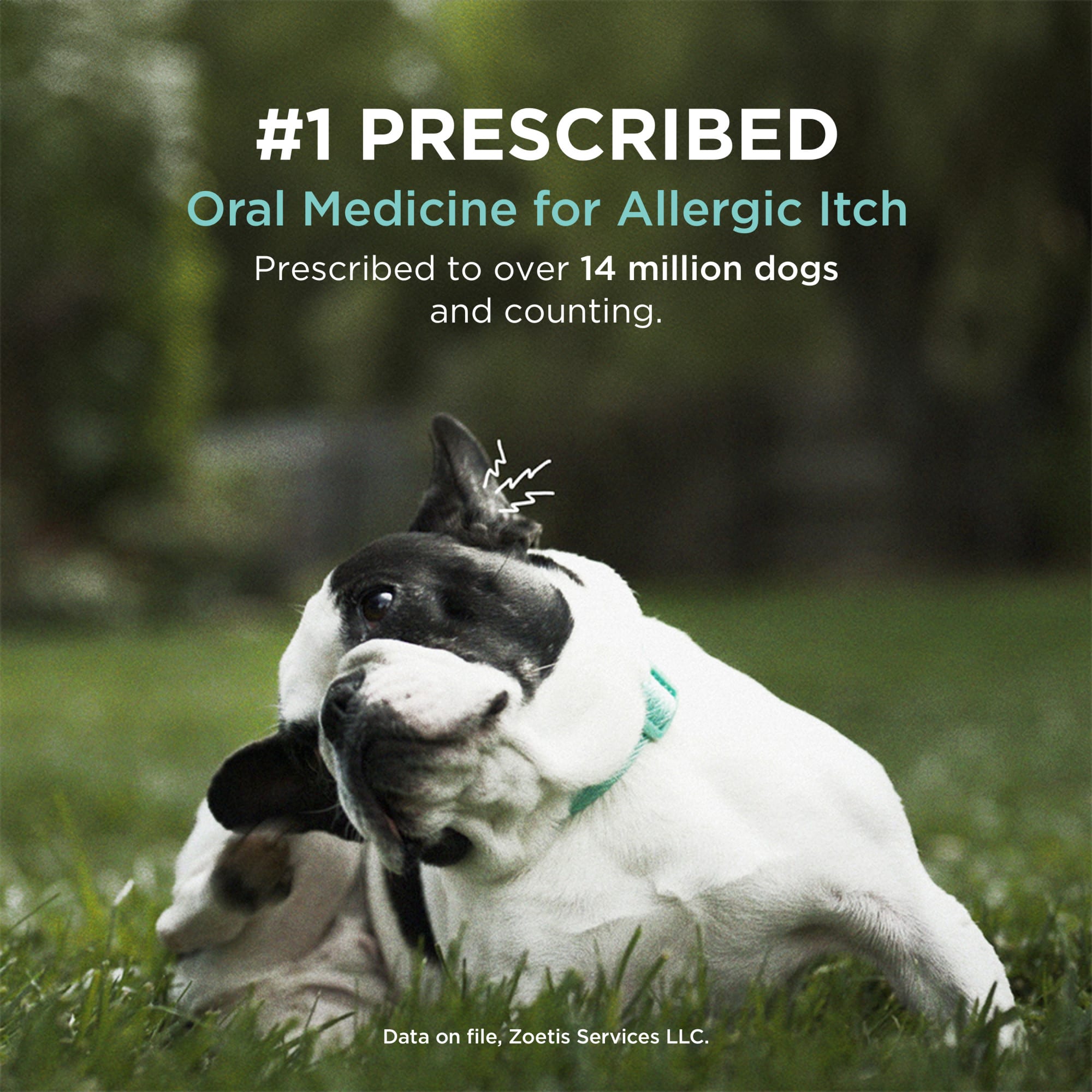Apoquel For Dogs: Alternatives & FAQs You Need To Know
Can a dog's misery be alleviated by a drug designed solely for them? The answer is often more complicated than a simple yes or no, especially when dealing with the complex world of canine allergies and their treatment.
The quest for effective remedies for our furry companions often leads pet owners down a path of research, consultations, and, ultimately, the hope for relief. One such medication that has gained prominence in the veterinary field is Apoquel (oclacitinib). This drug, specifically designed to target the underlying causes of canine allergies, promises to ease the constant itching and discomfort that plagues many dogs. But what is it? And, more importantly, are there human equivalents or alternatives? Let's delve into the intricacies of this medication and its role in veterinary medicine.
Before discussing Apoquel and its potential alternatives, it's crucial to understand the nature of canine allergies. Just like humans, dogs can suffer from a range of allergic reactions, often triggered by environmental factors such as pollen, dust mites, or specific food ingredients. These allergies can manifest as skin irritation, excessive scratching, and other uncomfortable symptoms. Treating these allergies involves more than just managing the symptoms; it requires addressing the underlying immunological responses.
For those dog owners grappling with the challenges of finding the right treatment, the search can be exhausting. In fact, the efficacy of Apoquel is widely established. As a janus kinase (JAK) inhibitor, the drug works by selectively targeting the pathways that cause itch and allergic skin conditions in dogs. The oral formulation is designed to give dogs relief from the constant scratching and discomfort associated with allergies.
The following table provides detailed information about Apoquel (Oclacitinib) and the role of JAK inhibitors:
| Characteristic | Details |
|---|---|
| Drug Name | Oclacitinib (Apoquel) |
| Drug Class | JAK Inhibitor (Janus Kinase Inhibitor) |
| Primary Use | Treatment of allergic skin conditions and itching (pruritus) in dogs. It is specifically designed to control atopic dermatitis and allergic dermatitis. |
| Mechanism of Action | Selectively inhibits the JAK1 enzyme, which plays a key role in signaling pathways that lead to inflammation and itch. |
| Formulation | Oral tablets |
| Target Species | Dogs at least 12 months of age |
| Common Side Effects | Vomiting, diarrhea, ear infections, pneumonia, skin masses, and the potential for increased susceptibility to infections. |
| Human Equivalent | There is no direct human equivalent to Apoquel. While human JAK inhibitors exist, they are not the same drug, and oclacitinib has not been studied for use in humans. |
| Considerations | It is important to consult with a veterinarian for proper diagnosis and treatment plan. Consider the potential for adverse reactions. |
| Alternatives | Immunosuppressant drugs (e.g., corticosteroids), antihistamines, cyclosporine, allergen-specific immunotherapy, and topical treatments. |
| FDA Approval | Approved by the FDA for use in dogs. Not approved for use in humans. |
| Additional Information | Its essential to follow the veterinarian's instructions for dosing and administration. Regular monitoring for side effects is recommended. |
As the data indicates, oclacitinib (Apoquel) is designed specifically for dogs. The fact that the human equivalent does not exist emphasizes the differences in allergy treatments between the species. While both dogs and humans can develop allergies, the medications that treat those allergies differ significantly, and cross-species application of any drug requires considerable study and approval from regulatory authorities.
- Kelvin Clemons Simone Biles Father Details Background
- Mimms Case Analysis Traffic Stop Search Explained
Apoquel's efficacy comes from its ability to target the underlying processes causing the dog's itch. It is a JAK inhibitor, which focuses on the janus kinase (JAK) enzymes, critical components of the signal transduction pathways involved in inflammation and immune responses. It selectively inhibits the JAK1 enzyme, which plays a key role in the signaling pathways that lead to itch and allergic skin conditions. By doing so, it effectively reduces the dog's response to allergens and decreases the itchiness and inflammation that are characteristic of allergic reactions.
Even with effective drugs like Apoquel, there are a few adverse effects such as vomiting, diarrhea, or the formation of subcutaneous and dermal masses. Some dog owners report cases where Apoquel has stopped working. These potential challenges can lead pet owners to search for alternatives, which is why understanding the landscape of other treatment options is crucial.
The crucial factor is to remember that while Apoquel has no direct human equivalent, JAK inhibitors are a class of drugs used to treat various conditions affecting the human immune system. They work by blocking specific processes in the body that affect inflammation. This insight highlights the importance of scientific innovation and how solutions that work for one species may not apply in another. The specific formulation and application of the drug may differ.
Given the potential drawbacks, including the high cost and the possibility of long-term use, it is often worth considering alternative therapies. One approach is to test out a couple of alternatives for Apoquel. In order to help dogs and dog owners find the best solutions for managing allergic skin conditions, a veterinarian may recommend a range of alternative medications and treatment options.
For dogs, alternatives to Apoquel are plentiful and can include antihistamines, corticosteroids, cyclosporine, and topical therapies. In some cases, a dog owner would want to use an alternative for Apoquel when Apoquel stopped working. Immunotherapy is another option, providing long-term relief by desensitizing the dog to specific allergens. A combination of these, tailored to the individual dogs needs, often forms the best approach to managing allergies effectively.
The process of finding the correct treatment for your dog's allergies is a journey of continuous monitoring and adjustment. It is necessary to keep detailed records of symptoms and reactions and regularly consult with your veterinarian. This collaborative approach ensures that your furry friend receives the best possible care. The availability of multiple alternatives ensures that you can find a treatment that works effectively and is well-tolerated by your dog.

Human Equivalent Of Apoquel corona.dothome.co.kr

Apoquel®(Oclacitinib tablet) Best Equipment Center Co., Ltd. (BEC)

Apoquel Equivalent For Humans lupon.gov.ph